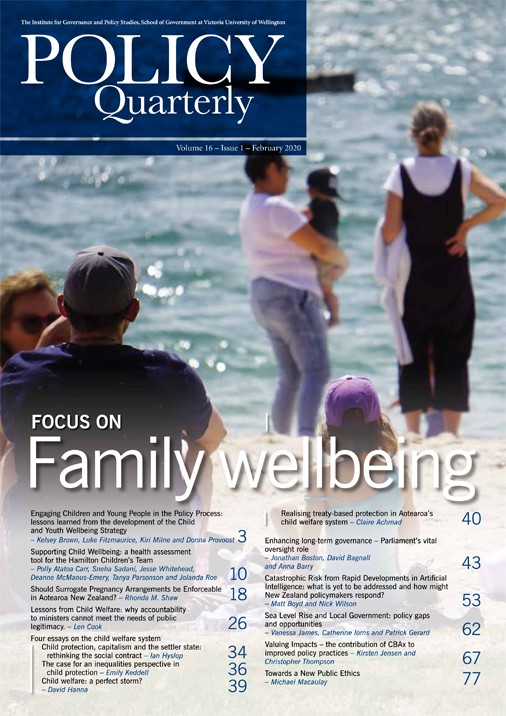Lessons from Child Welfare
why accountability to ministers cannot meet the needs of public legitimacy.
DOI:
https://doi.org/10.26686/pq.v16i1.6352Keywords:
child welfare, Mäori, legitimacy, families, public sectorAbstract
It is an historical fact that tamariki Mäori are over-represented in Aotearoa New Zealand’s child welfare system, with a recent disproportionate increase in that over-representation. The recent spotlight on the removal of babies and, in particular, several highly visible examples in the media of attempted removals of babies, however, has once again raised the issue of the legitimacy of state involvement in ensuring the care and protection of children among Mäori. Increased accountability and transparency is one vital step towards restoring the public legitimacy of the child welfare system. This article examines the factors that led to and exacerbated the most recent crisis in Mäori views of the legitimacy of the child welfare system, and details contextual factors both common among state actors and unique to New Zealand’s child welfare system that influence systems of accountability. I conclude by providing a set of key factors that are imperative when moving towards increased systemic accountability of the child welfare system – factors that acknowledge and incorporate the historical legacy, current socio-economic position, and the significance of whänau and family.
Downloads
Downloads
Published
Issue
Section
License
Permission: In the interest of promoting debate and wider dissemination, the IGPS encourages use of all or part of the articles appearing in PQ, where there is no element of commercial gain. Appropriate acknowledgement of both author and source should be made in all cases. Please direct requests for permission to reprint articles from this publication to Policy-Quarterly@vuw.ac.nz.



